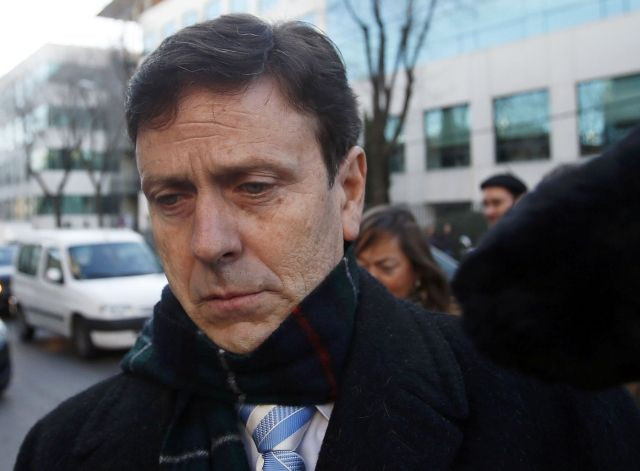
Spanish doctor Eufemiano Fuentes, accused of masterminding a doping ring in cycling, told a court on Tuesday he also had clients in other sports including soccer, tennis, athletics and boxing after finally taking the stand in a high-profile and much-delayed trial.
Fuentes and four other defendants are appearing before a Madrid judge almost seven years after police seized anabolic steroids, transfusion equipment and blood bags as part of a investigation code-named "Operation Puerto".
The trial has attracted close international scrutiny because anti-doping authorities, who are represented in court, are hopeful it will finally lead to evidence of wrongdoing by athletes in sports other than cycling being made available.
Legal experts say it could also change the way doping issues are dealt with by criminal justice systems around the world.
Fuentes, who denies doping, was due to be cross-examined on Monday on the trial's opening day but his testimony was delayed as Judge Julia Santamaria dealt with procedural issues.
He was again mobbed by dozens of reporters, photographers and camera crews as he arrived with his lawyer on Tuesday and before he took the stand Santamaria agreed to a prosecution petition that disgraced American cyclist Tyler Hamilton be called as a witness later in the trial.
She also said she would consider a request from the World Anti-Doping Agency (WADA) for access to the blood bags giving them three days to provide a written justification.
BLOOD TRANSFUSIONS
Wearing a dark blue suit, white shirt and striped tie with his spectacles on a string around his neck, the softly spoken Fuentes was grilled for around three hours by Santamaria about transfusions and other services he provided.
As Spain's current anti-doping legislation was not in force in 2006 when the police raids took place, Fuentes and his fellow accused, including his sister Yolanda, are being tried for violating public health regulations and the public prosecutor has asked for prison sentences of two years.
Speaking clearly and confidently, Fuentes described in painstaking detail how he would help athletes control the proportion of red cells in their blood by extracting some if the level were too high and injecting stored blood if it were low.
The blood bags, some of which contained traces of erythropoietin (EPO), were linked to a host of professional cyclists including German Jan Ullrich and Italian Ivan Basso, who were both excluded from the 2006 Tour de France.
Basso, a double Giro d'Italia champion, is due to give evidence next month along with Alberto Contador, the Spaniard stripped of one of his three Tour de France titles after testing positive for a banned substance.
Fuentes told the judge he had worked with athletes from "all kinds" of sports. He specifically mentioned cycling, soccer, tennis, athletics and boxing but said the overwhelming majority were cyclists.
Santamaria did not quiz him any further about the other sports or the names and nationalities of clients.
The blood bags had code numbers and names for each client and Santamaria asked Fuentes why this secrecy was necessary and why some of the treatments took place in hotels around Madrid.
"Sometimes the client asked to use an alias, which is always more convenient than a name and surname," Fuentes said.
Regarding the hotels, he added: " The clients didn't want to bump into each other. If you have breast implants you don't want to bump into someone you know at the clinic."
ILLEGAL SUBSTANCES
After Santamaria finished her three-hour cross examination, Fuentes answered a number of questions from the state prosecutor before it was the turn of the lawyers representing organizations including WADA, the Spanish Cycling Federation (RFEC) and the International Cycling Union (UCI).
However, Fuentes informed the judge he would exercise his right not to answer and sat grim-faced as a litany of questions about the blood transfusions, the illegal substances seized and other issues was read out for the court record.
The four other defendants are due to take the stand starting on Wednesday.
With Madrid competing with Istanbul and Tokyo for the right to host the 2020 Olympic Games, the Spanish government hopes the trial will help to dispel the impression that the Iberian nation has been soft on doping, particularly in cycling.
Due to end in mid-March, it will put cycling's problems with illegal drug use back in the spotlight days after American cyclist Lance Armstrong admitted doping on each of his seven Tour de France victories.
(Additional reporting by Silvio Castellanos, editing by John Mehaffey)
© Thomson Reuters.




